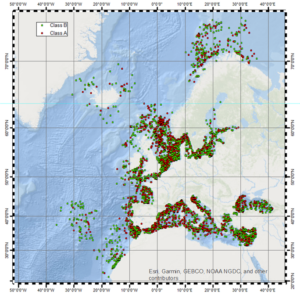In a significant move towards safeguarding European seas from environmental degradation, the European Union’s transport and tourism committee MEPs voted last Thursday to enhance regulations pertaining to pollution caused by ships. The focus of these revisions extends beyond oil spills, encompassing sewage and garbage discharge, with the aim of ensuring more effective enforcement and substantial penalties.
The committee’s decision involves updating EU rules to align with international standards established by the International Maritime Organization, thereby integrating them into EU law. This alignment will facilitate easier enforcement of regulations to prevent illegal discharges from ships.
One of the key amendments proposed by MEPs is the extension of existing rules that prohibit the discharge of oil and noxious liquid substances. The updated regulations would now also cover the discharge of sewage, garbage, and residues from scrubbers. This comprehensive approach underscores the MEPs’ commitment to address various forms of pollution caused by ships.
Crucially, the MEPs advocate for holding shipowners accountable for environmental damage resulting from ship pollution. This measure becomes particularly pertinent when those responsible for illegal discharges cannot be located or lack the financial means to pay the full penalty. The proposal also discourages EU governments from setting predefined maximum or minimum penalties, emphasizing the importance of maintaining the effectiveness and proportionality of penalties.
The decision to strengthen regulations comes in response to perceived weaknesses in the current EU rules, which, according to MEPs, have been inadequately applied by member states. To address this, MEPs are pushing for more rigorous detection of illegal discharges and prompt verification of CleanSeaNet alerts—a satellite-based system designed for oil spill and vessel detection. By encouraging information exchange among member states and the commission on pollution incidents, MEPs seek to enhance the follow-up on pollution incidents and prevent undetectable discharges.

2018 CleanSeaNet detection statistics: dots in the map represent the spills which have a higher detection confidence level (in red) and a lower detection confidence level (in green)
EP rapporteur Marian-Jean Marinescu expressed dissatisfaction with the current state of EU rules, emphasizing the need for member states to intensify efforts to protect European seas from the adverse effects of ships illegally dumping waste. The draft negotiating mandate received overwhelming support, with 36 votes in favor and only one against. Transport committee MEPs unanimously endorsed initiating talks with member states to finalize the legislation once it receives plenary approval next week.
This legislative push signifies a critical step towards creating a more robust framework for addressing ship pollution, underlining the European Union’s commitment to environmental sustainability and the protection of its seas.
